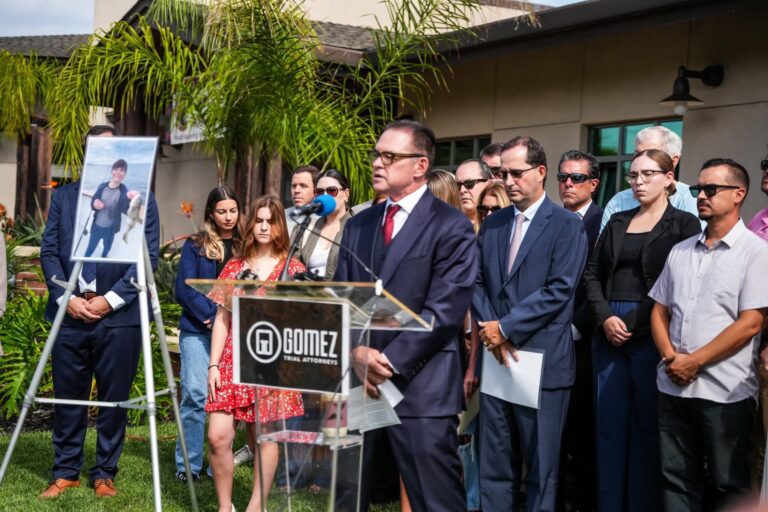Table of Contents
It is no secret that life has become increasingly difficult
for mothers over the past half-century. Most mothers spend half or all of the day at work only to come home
to work the second shift of housekeeping and caring for the kids.
Wouldn’t it be nice if we lived in a country where working
mothers were provided with a private space and break time to nurse their little
ones? This is the reality of working in the United States thanks to the PUMP
for Nursing Mothers Act.
The Origination of the PUMP for Nursing Mothers Act
President Biden signed the PUMP for Nursing Mothers Act into
law in late 2022 in unison with the Pregnant Workers Fairness Act. Both acts
were passed as components of the Consolidated Appropriations Act.
PUMP is an acronym that is short for Providing Urgent
Maternal Protections. Moreover, the word “pump” is a reference to the act of
pumping breast milk for infant sustenance.
The legislation provides nursing employees with the legal
right to nurse their young during break times in private areas. In short, the
law facilitates the breastfeeding of children in private while at work.
Read through the language of the law and you will find it
specifies that those who recently entered motherhood are provided with the
opportunity to breastfeed or express breast milk for a child who is nursing for
a full year after the infant’s birth. The law states such reasonable break time
is available each time a mother who is at work needs to express milk.
Moreover, the law states that those who recently entered
motherhood are legally entitled to an area at work to pump breast milk aside
from a bathroom. The room in question must be shielded from the view of other
employees. Furthermore, the language of the law also states the room used for
employee breastfeeding is to be positioned and secured in a manner that does
not allow intrusion from colleagues as well as customers and the general
public.
The “Why” of the PUMP for Nursing Mothers Act
The legislation closes the coverage gap that had rendered
25% of females of childbearing age without federal government protection of the
right to pump breastmilk for infants in a private space during a break. The
legislation extends the legal right for pump breaks in a private room to almost
9 million additional employees ranging from those working on farms to
registered nurses, school instructors, and other contributors to the economy.
The PUMP for Nursing Mothers Act also legally empowers
employees to file a lawsuit against an employer for breaking the law. Before
the passage of the Act, workers who were not provided with breaks for pumping
breast milk for infants or a private space for such actions had no avenue of
legal recourse to obtain financial compensation in a court of law.
Moreover, the Act is also important as it provides helpful
semantic clarification. The letter of the law states that time spent pumping
breastmilk at work is tabulated as time worked in the context of calculating
both minimum wage and overtime if the worker is not fully relieved of her
duties while pumping.
Delving Deeper Into the Specifics of the PUMP for Nursing Mothers Act
The U.S. Department of Labor Wage and Hour Division (or WHD)
has provided in-depth guidance for employers and employees to better understand
the pump at work component of the Fair Labor Standards Act (FLSA). The WHD
states mothers are legally permitted to take breaks whenever necessary to pump
breast milk for their infant. The frequency and length of the breaks differ by
employee.
The WHD states employers and employees are legally allowed
to agree to specific nursing schedules in accordance with each unique
employee’s pumping needs. However, the WHD also recommends that employers do
not mandate that employees adhere to a regimented schedule. Moreover, WHD
representatives insist that employers must provide recent mothers with nursing
flexibility as their pumping needs will likely change as time progresses.
Is There Financial Compensation for Breastfeeding at Work?
Employers and employees should be aware that the time
mothers spend breastfeeding at work may be unpaid. However, if local, state, or
federal laws state otherwise, such pump breaks can be paid.
Both employers and employees are advised to sweat the small
stuff of the standardized requirements for tabulating and compensating hours of
labor as dictated by the FLSA. Employees are to be financially compensated for
time spent pumping when not completely relieved from their work duties or when
breastfeeding during a paid break.
Pump Room Accessibility
Aside from providing a private room that cannot be accessed
by fellow employees and the general public, employers are also to ensure the
room is available whenever employees need it. The room used for breastfeeding
infants cannot be a bathroom.
The WHD recommends that all employers ensure pumping room
privacy by hanging or illuminating a sign when the space in question is in use.
Moreover, it is advisable to add a lock to the door to guarantee complete
privacy. Finally, we would be remiss not to mention that employees who work
from home and are monitored by a webcam or other telework monitoring device
must also be completely free from others’ view when breastfeeding.
The Functionality of the Pumping Room
The WHD goes as far as stating the pumping room used for
breastfeeding is required to have a place for a nursing worker to pump while
seated. The room must have a flat surface aside from the floor that can be used
to pump breastmilk. Employers must also permit employees to safely store their
pumped milk while on the clock, be it in a cooler, a refrigerator, or a food
container with insulation.
Employers are advised to provide electricity in the breast
milk pumping room, ensuring nursing employees can use electric pumps as opposed
to being limited to a battery-powered pump that takes time and energy to use.
It is also advisable to position at least one sink near the
space where the pumping occurs, guaranteeing the employee is permitted to wash
her hands and clean the pump’s attachment. Sink access also enhances the
space’s functionality while decreasing the length of time necessary for nursing
employees to pump while at work.
Are There any Exemptions to the PUMP for Nursing Mothers Act?
There is a single exemption to the act though that exemption
is limited to small employers and only allowed under specific circumstances.
Employers that have less than 50 employees across the country can be exempt
from requirements for pump time if they show that compliance for a specific
employee would result in an undue hardship.
However, the onus of proving such hardship is squarely on
the employer. The employer must demonstrate that the nuanced needs of the
employee for pumping at work constitute an undue hardship due to financial
factors for compliance or another difficulty.
Retaliation Against Those Who Breastfeed at Work Is Not Permitted
The FLSA has gone to great lengths to make employers aware
that retaliation against employees who breastfeed at work or engage in other
protected activities while at work is illegal. The WHD insists employers are
not permitted to hold onto the time that an employee takes for pumping to meet
quotas.
Nor can employers mandate that employees work extra hours to
accommodate for time missed when pumping for their infant. However, special
rules apply to employees of rail carriers and motor coaches.
If you have been retaliated against for requesting a break
to pump, requesting a private space to pump, pumping at work, or anything else
covered under employment law, do not suffer in silence. Our employment law
attorney is here to help.
Contact Gomez Law Today
For help, contact Gomez Trial Lawyers today for a free
consultation by calling 866-TRIAL LAW (866-874-2552) or by contacting
us online.







